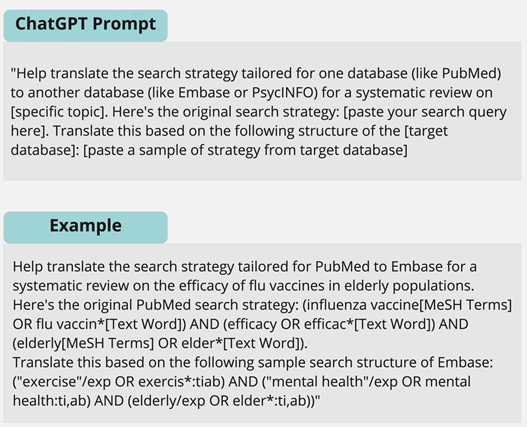Shoutout: Elevate your academic and technical writing to the next level with Trinka AI's advanced grammar checker. Unlock premium features for polished, error-free content. Sign up now to Trinka Premium for exclusive benefits of powerful and uninterrupted writing! 👉 https://www.trinka.ai/
The strength of a systematic review relies on its ability to sift through to retrieve relevant studies comprehensively. An optimized search approach not only strengthens the evidence for your paper but also boosts the efficiency of your review.
In this newsletter, I'll guide you through the process of crafting an effective literature search strategy and introduce key tools, empowering you to capture comprehensive and relevant evidence. In the end, I have some news regarding AI & systematic reviews.
Here are the key steps to crafting an effective search strategy:
i. Identify search concepts and terms for each
The first step in a systematic literature search is identifying key concepts. Using the PICO framework - Patient, Intervention, Comparison, Outcome - can streamline this.
For instance, consider the question: "In elderly patients (P), how effective is the influenza vaccine (I) compared to no vaccine (C) in preventing flu-related hospitalizations (O)?"
Start by identifying essential concepts, focusing on those most likely to be found in the title & abstract.
ii. Controlled Vocabulary in Searches
The next step involves identifying controlled vocaublaries for databases.
Controlled vocabularies in systematic review searches are standardized, predefined terms that databases employ to index and retrieve relevant articles, ensuring consistency and overcoming terminology variations across studies.
These vocabularies, like the medical subject headings (MeSH) in PubMed, are organized hierarchically. For instance, if you're researching influenza, using the MeSH term "Influenza, Human" ensures that you capture articles that might refer to the condition as "flu", "seasonal influenza", or even "H1N1".
Encompassing these varied terminologies under one standardized term enhances the precision of your search. Here is a classification of controlled vocabularies across all databases.
iii. Keywords search
When you use keyword searches, you're instructing databases to look for exact matches to the terms you input. This method can be very direct but comes with its own set of challenges:
- Precision: Searching "flu" might miss articles using "influenza".
- Broadness: "Flu" could retrieve unrelated articles, e.g., "fluorescence".
- Variability: Different terms for the same concept require diverse keywords.
For an influenza-focused review, using keywords like "seasonal flu", "H1N1", and "influenza A" ensure you get comprehensive results.
Crafting Keyword Terms for Systematic Reviews:
- Similar/Synonym Terms: Capture variations like "flu" and "influenza.
- Spelling Variations: Consider different regional spellings/ terminologies or hyphenated terms. E.g.: American versus British spelling
- Inconsistent Descriptions: Some terms might be phrased differently across articles but have the same meaning. E.g., terms like "bird flu" and "avian influenza".
- Specificity Spectrum: Balance between generic and detailed terms. E.g., from "virus" to "H1N1 influenza virus."
- Truncation: Asterisk (*) at the end of a string of characters searches for all terms that begin with that string. E.g., using "influenz*" retrieves "influenza", "influenzae", and "influenzal".
- Wildcards: “?” replace a letter or denote an extra letter where spelling or word variation is possible. E.g. "H?N1" matches both "H1N1" and "H3N1".
- Proximity Operators: "influenza NEAR3 vaccine" ensures articles where "influenza" and "vaccine" are within three words of each other.
Remember, the key is to think broadly, capture all relevant terms, and tailor your search strategy to the specific database in use.
iv. Combine Terms with Boolean Operators
Utilizing Boolean operators enhances the specificity and breadth of your search.
The operator "AND" ensures that all selected concepts are present in the results. For example, "influenza AND vaccine" will retrieve articles containing both terms.
On the other hand, the "OR" operator fetches results where any of the mentioned concepts appear, so "flu OR influenza" captures articles with either term.
If you want to exclude a particular term, the "NOT" operator comes in handy. For instance, "influenza NOT H1N1" will bring up articles on influenza that don't mention the H1N1 strain specifically.
Here is an image to illustrate this concept:
v. Translate Your Search Strategy
Each database, be it PubMed, Scopus, or Web of Science, has its own unique terminology and way of interpreting search queries (syntax). It's essential to adapt your search strategy to fit the specific standards of every database you're using.
Here are some free tools to help you with “search translation".”
ChatGPT
Example:
vi. Document your Search.
For best practices, transparency, and reproducibility, document all elements of the literature search.
Resources for further reading:
In this quick guide, you've learned the basics of doing a systematic search. Use this as a starting point for deeper research. And remember, always reach out to your librarian for extra help and advice.
A big thank you to Razia Alliani for writing today’s newsletter. Razia works at Covidence and is a LinkedIn influencer with 35k followers.
Here is the news she promised to share with you at the start:
I have created a PDF guide to help you use AI/ ChatGPT to carry out a systematic review ethically. It’s called the Human-ChatGPT Collaboration for Systematic Reviews.
The best part is, it's priced less than your casual dinner out and I have a launch offer 🔥. Additionally, I’m offering a risk-free purchase with a 10-day moneyback guarantee if you are not satisfied. So, you've got nothing to loose! Grab your copy here: LINK
Thank you to you all. Have a great week ahead!
Best, Asad Naveed
Extras:
☕Buy me a coffee. A big thanks to an anonymous donor who bought me 4 coffees last week. Thank you so much!







Thank you so much
Extremely useful article, Asad. Thanks for sharing.